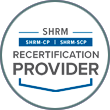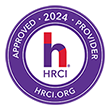TIN Verification and B Notices in 2025: Avoid Costly Mistakes and Penalties
In our interactive, instructor-led 100-minute event, you will learn how to streamline your TIN (Taxpayer Identification Number) verification process to avoid costly mistakes and penalties. This session equips Finance and HR professionals with tools to verify tax IDs efficiently, comply with IRS regulations, and mitigate risks associated with errors.
Join us, and you’ll discover:
- How to register and use the IRS TIN Matching System for quick verification
- The impact of incorrect or missing TINs on your compliance and audit risks
- Best practices for managing W-9 and 1099 processes
- Proactive steps to avoid backup withholding and penalties
Program Highlights
Streamlined Processes: Reduce Errors & Save Time
- How to use the IRS TIN Matching System to validate contractor information
- Discover ways to align HR and accounting departments for better compliance
- Techniques to create a seamless workflow for collecting and managing W-9s
Compliance Essentials: Protect Your Organization
- Identify and address TIN mismatches before they become penalties
- What to do if you receive a B Notice: How to protect your organization
- Methods to document internal processes to support audit readiness
- Solutions for managing IRS notices effectively and avoiding backup withholding
Better Accuracy: Prevent Penalties & Improve ROI
- How to sport the red flags in vendor setups that trigger audits
- Errors that cause B Notices: Tips to avoid future penalties
- Strategies to leverage payroll systems to automate compliance tasks
- Ways to reduce manual tasks and administrative burdens
Question & Answer Session – have your specific TIN questions answered!
About the Speaker
Tricia Richardson, CPP, SPHR, SHRM-SCP provides clients with direct payroll assistance, information, education, consultation, and even empathy, in her role as a Consultant.
- Tricia has more than 25 years of experience in all aspects of workforce management (payroll processing, taxation, employee handbooks, human resources, benefits, etc.). Tricia is a Payroll and Human Resource “nerd” who enjoys reading Internal Revenue Code.
- She is a Certified Payroll Professional (CPP) through PayrollOrg (formerly the American Payroll Association) a Senior Professional in Human Resources (SPHR) through the HR Certification Institute, as well as a Society for Human Resource Management Senior Certified Professional (SHRM-SCP).
- Tricia is a Member of the National Speakers Bureau for PayrollOrg and a Contributing Writer to Paytech Magazine, a regular periodical provided to over 20,000 Members.
Program Benefits
In our 100-minute program, you’ll discover how to transform your TIN verification and compliance processes into a streamlined operation that saves time and money. By implementing the tools and practices shared in this session, you’ll reduce the risk of penalties, enhance cross-departmental collaboration, and improve overall compliance efficiency, delivering immediate and long-term ROI.
If you'd like this program customized for your organization, call us at 1-800-964-6033.
We're certain we can fulfill your training needs, while making it fit in your budget!
SHRM Credits

Premier Learning Solutions is recognized by SHRM to offer Professional Development Credits (PDCs) for the SHRM-CP® or SHRM-SCP®. This program is valid for 1 PDCs for the SHRM-CP® or SHRM-SCP®. For more information about certification or recertification, please visit www.shrmcertification.org.
HRCI Credits

This program has been approved for 1 (HR (General)) recertification credit hour toward aPHRTM, aPHRiTM, PHR®, PHRca®, SPHR®, GPHR®, PHRiTM and SPHRiTM recertification through the HR Certification Institute. Learn more at hrci.org
Purchase this On-Demand Workshop
TIN Verification and B Notices in 2025: Avoid Costly Mistakes and Penalties
$199 + applicable taxes
You will receive access to the live event(s) which includes a copy of the speaker's presentation, real-time training with our expert instructor, and an interactive question & answer period. Two to three business days after each live training concludes, an email is sent to registrants which contains a link for unlimited access to the on-demand recording you can revisit & review.
You'll receive a link to access the recording(s) in your order confirmation email. On-demand recordings also include a copy of the speaker's presentation and the ability to submit your questions to the expert, for up to 7 days after viewing.
$300 + applicable taxes
You will receive access to the live event(s) which includes a copy of the speaker's presentation, real-time training with our expert instructor, and an interactive question & answer period. Two to three business days after each live training concludes, an email is sent to registrants which contains a link for unlimited access to the on-demand recording you can revisit & review.
You'll receive a link to access the recording(s) in your order confirmation email. On-demand recordings also include a copy of the speaker's presentation and the ability to submit your questions to the expert, for up to 7 days after viewing.
$699 + applicable taxes
You will receive access to the live event(s) which includes a copy of the speaker's presentation, real-time training with our expert instructor, and an interactive question & answer period. Two to three business days after each live training concludes, an email is sent to registrants which contains a link for unlimited access to the on-demand recording you can revisit & review.
You'll receive access to our full library of on-demand trainings along with the speaker's presentation and handouts for each event.
$899 + applicable taxes
You will receive access to the live event(s) which includes a copy of the speaker's presentation, real-time training with our expert instructor, and an interactive question & answer period. Two to three business days after each live training concludes, an email is sent to registrants which contains a link for unlimited access to the on-demand recording you can revisit & review.
You'll receive access to our full library of on-demand trainings along with the speaker's presentation and handouts for each event.
Guaranteed to be Good
All training experiences include a 7-day 100% money-back guarantee.
Full-Team Pass
Simply share the invite link with your team so you can learn and grow together!
Yours Forever
The event recording and materials are yours to rewatch and share as you choose.


